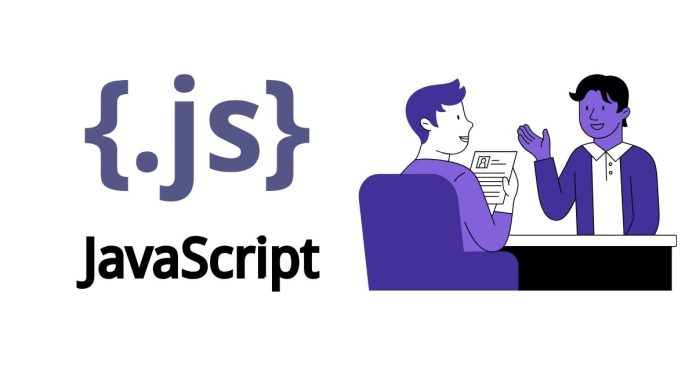JavaScript remains one of the most in-demand programming languages in 2024, powering modern web development frameworks and libraries like React, Angular, and Vue.js. Whether you’re preparing for a job interview or brushing up on your skills, understanding key JavaScript concepts is essential. This blog outlines some of the most frequently asked JavaScript interview questions for 2024, covering fundamental to advanced topics.
Basic JavaScript Interview Questions
1. What is JavaScript? How is it different from Java?
- JavaScript: A lightweight, interpreted, and object-oriented programming language primarily used for dynamic web development.
- Differences from Java:
- Java is a statically typed, compiled language, while JavaScript is dynamically typed and interpreted.
- Java requires a JVM, while JavaScript runs directly in browsers.
2. What are the data types in JavaScript?
JavaScript has the following data types:
- Primitive types: String, Number, Boolean, Undefined, Null, BigInt, Symbol.
- Non-primitive types: Object (includes Arrays, Functions, etc.).
3. What is the difference between let, var, and const?
| Feature | var |
let |
const |
|---|---|---|---|
| Scope | Function scope | Block scope | Block scope |
| Reassignment | Allowed | Allowed | Not allowed |
| Hoisting | Hoisted but undefined | Hoisted but not initialized | Hoisted but not initialized |
Intermediate JavaScript Interview Questions
4. Explain closures in JavaScript.
A closure is a function that retains access to its parent’s scope, even after the parent function has executed.
Example:
function outerFunction() {
let count = 0;
return function innerFunction() {
count++;
return count;
};
}
const increment = outerFunction();
console.log(increment()); // 1
console.log(increment()); // 2
5. What is the difference between == and ===?
==(Abstract Equality): Compares values after type coercion.===(Strict Equality): Compares values without type coercion.
Example:
console.log(5 == '5'); // true
console.log(5 === '5'); // false
6. What is the Event Loop in JavaScript?
The event loop is a mechanism that handles the execution of asynchronous code in JavaScript. It ensures that the call stack is empty before processing tasks from the callback queue or microtask queue.
Advanced JavaScript Interview Questions
7. What are Promises in JavaScript?
A Promise is an object representing the eventual completion (or failure) of an asynchronous operation.
States of a Promise:
- Pending
- Fulfilled
- Rejected
Example:
const promise = new Promise((resolve, reject) => {
setTimeout(() => resolve("Success"), 1000);
});
promise.then(result => console.log(result)); // Success
8. What is the difference between call(), apply(), and bind()?
| Feature | call() |
apply() |
bind() |
|---|---|---|---|
| Usage | Invokes a function with arguments individually. | Invokes a function with arguments as an array. | Returns a new function bound to a specific context. |
| Example | func.call(this, arg1, arg2) |
func.apply(this, [arg1, arg2]) |
const boundFunc = func.bind(this) |
9. Explain async and await.
The async and await keywords are used to work with Promises in a cleaner, synchronous-like manner.
Example:
async function fetchData() {
const response = await fetch('https://api.example.com/data');
const data = await response.json();
return data;
}
fetchData().then(console.log);
10. What are JavaScript Modules?
Modules allow developers to organize code into reusable and maintainable blocks.
Example:
- Exporting:
export const greet = () => "Hello"; - Importing:
import { greet } from './module.js'; console.log(greet()); // Hello
Conclusion
JavaScript interview questions in 2024 focus on understanding core concepts, problem-solving skills, and knowledge of modern JavaScript features. Preparing these questions and practicing real-world examples will help you ace your next interview.
Master these topics, and you’ll be well on your way to impressing interviewers and landing your dream job as a JavaScript developer!


